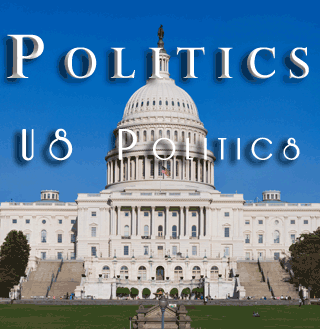Let’s make campaign financing democratic
Campaign finance reform is high on the Democratic Party’s to-do list and a bill on campaign finance reform is already in committee in the House. The Supreme Court’s decision in the Citizens United case not only unwound the McCain-Feingold Campaign Financing Act but overturned 100 years of weaker congressional attempts at controlling campaign financing. A bill is already in committee in the House to repair the mischief of Citizens United.
So, what are the problems such legislation should address? The major problems are, first, anyone who contributes a large sum to a campaign generally wants something in return, access to the candidate if elected, votes on issues impinging on the contributor’s well-being whether the candidate agrees it’s in the best interest of the country or not.
The second problem is all the advantages falling to the incumbent. Incumbents have time to learn how to please their big contributors and follow their directions. For this reason, they get most of the big money; the challenger is left out.
These, of course, are only two major problems with current campaign financing. I would suggest that the United States could eliminate all the current problems of financing, by replacing all the rules and regulations with one form of financing: anonymous “crowdfunding.”
Crowdfunding is what Bernie Sanders relied on in his 2016 run for the presidency when he refused federal and PAC funding and raised $234.3 million from millions of contributions averaging $27. Other candidates are following in Bernie’s footsteps and raising large sums via crowdfunding. Actblue.com, the largest online crowdfunding operation for local, state, and national Democratic candidates, has raised over $8 billion since 2004. /p>
The 50,000 people who just favor the candidate’s positions and want no special favors from him or her, contributing $20 apiece via crowdsourcing, amounts to $1 million. Crowdsourcing involves none of the problems of a $1 million dollar contribution from a billionaire.
Perhaps the greatest contribution to our political system such an approach would bring is that it would extend our fragile democracy to campaign financing. We saw how fragile our democracy is Jan. 6 of this year. We could expand that democracy, strengthen it, by extending it to campaign financing, resolving the problems of the latter at the same time.
Contributors to a crowdfunding campaign would have no vested interests. They would simply want their candidate to continue voting the way he or she has voted in the past. Those who raised more than the limit would be allowed to share the excess with other candidates of their choosing.
The candidates themselves would have nothing to hide from the electorate. If candidates were limited to crowdfunding, they would be perfectly free to vote their conscience on every issue, every bill the vote upon.
The crowdsourcing would have to be anonymous and controlled, limited to, say, $1,000 or some other reasonable figure. Crowdfunders could not be identified by the size of their contribution to the candidate.
Crowdsourcing campaigns would also diminish the growing power inequality that comes with the expanding wealth inequality the United States is experiencing. If “all men are created equal” in the Declaration of Independence is to mean anything politically, we need to eliminate the effects of Citizens United decision. Crowdfunding would do that.
Local fundraisers in homes and public buildings may continue as usual, under the same rules and limitations as crowdsourcing. Strict limitations on any political contribution are on President Biden’s to-do list, anyway.
We have moved voting machines into the 21st century. I would suggest it’s time bring campaign financing into it and strengthen democracy at the same time.
(Williamsport Sun-Gazette, March 10, 2021)




